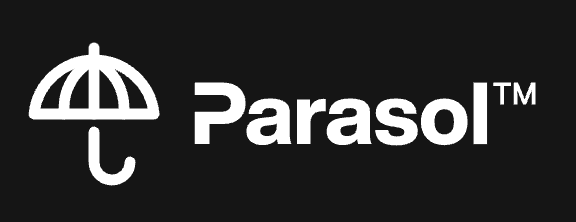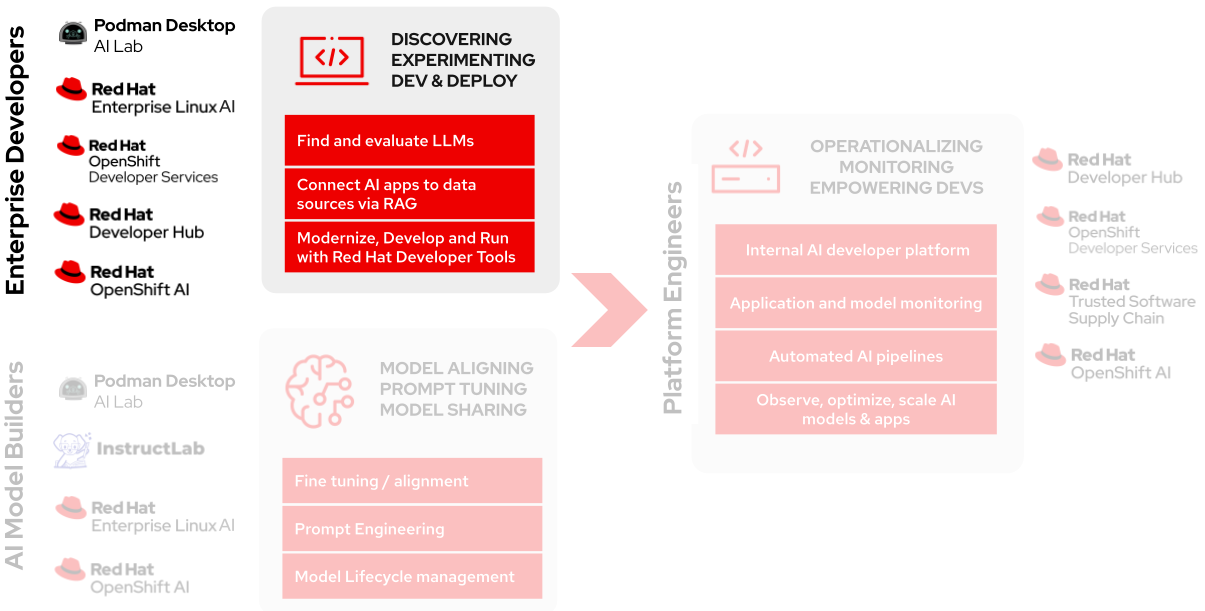Red Hat AI Development Roadshow - Developer Track

This workshop is centered around use cases in the insurance industry.
Parasol Insurance is a fictional company specializing in providing comprehensive insurance solutions for various sectors. The company’s goal is to help customers navigate complex financial landscapes by offering tailored insurance products and services. Recently, the company hired a new CIO and CTO, and they are pushing Parasol to modernize their business using AI technology, introducing new products, and adding features to existing products to address new market opportunities and remain competitive. The company is just getting started understanding how AI can help them and are evaluating Red Hat for their primary AI solution based on their longstanding trust and use of Red Hat’s platforms including RHEL and OpenShift. Parasol’s technical staff of app developers and platform engineers are beginning their own AI journey to understand how each of them can play a role in modernizing Parasol’s business and trying to understand which new roles may be needed.
Although we use the insurance industry in this workshop the principles are widely applicable.
AI Models used in this workshop
Throughout this workshop, you as a developer will be interfacing with a variety of LLMs deployed on Red Hat OpenShift AI and designed for different use cases. Some of these have been fine-tuned with Parasol’s private corporate data to demonstrate how organizations like Parasol can achieve business value with AI without giving away their secrets. The models you will use:
-
IBM Granite-3.0-8B-Instruct - This model is developed using a diverse set of techniques with a structured chat format, including supervised finetuning, model alignment using reinforcement learning, and model merging. It has not been tuned with Parasol-specific data.
-
parasol-chat - This model is derived from the IBM Granite-3.0-8B-Instruct and has been fine-tuned using the InstructLAB project with a Parasol-specific dataset. The name chat implies that this is primarily useful for conversations, and can respond with knowledge of Parasol’s private data.
-
parasol-instruct - This model is derived from IBM Granite-3.0-8B-Instruct, and also fine-tuned as above with Parasol-specific data. The name instruct implies that this is primarily good at following instructions to complete a task. This is useful when you want the model to follow explicit instructions, such as "Respond only with JSON with the following schema: {…}".
-
parasol-tools - This model is based on the Meta Llama Instruct model(s) and has specifically been trained to use agents (also called tools) to complete tasks that you as a developer instruct give it. This is used for "Agentic" applications that provide agents that can do specific tasks like send an email, calculate math problems, and more.
-
parasol-embeddings - This model is a Sentence Transformer model and uses the Nomic Embed model. It is used to capture semantic meaning of text and encode it to a multi-dimensional vector, often used for implementing RAG (Retrieval Augmented Generation) patterns, which you will explore in this workshop.
Red Hat Products and Technologies
In this workshop, you’ll gain hands-on experience with several cutting-edge Red Hat products and technologies that together form the basis of Red Hat’s Hybrid Cloud AI solution. Depending on your role at your company, you will be more interested in certain subsets. For this Developer track, we’ll focus on Podman Desktop AI Lab, RHEL AI, Red Hat Developer tools, and OpenShift AI as shown below.

The AI-infused application is built on Quarkus, a modern high-performance Java framework designed for building microservices and serverless applications. It’s built on a combination of technologies, including GraalVM, Hot Reload, and Kubernetes-native features, making it a powerful and efficient choice for Java developers.